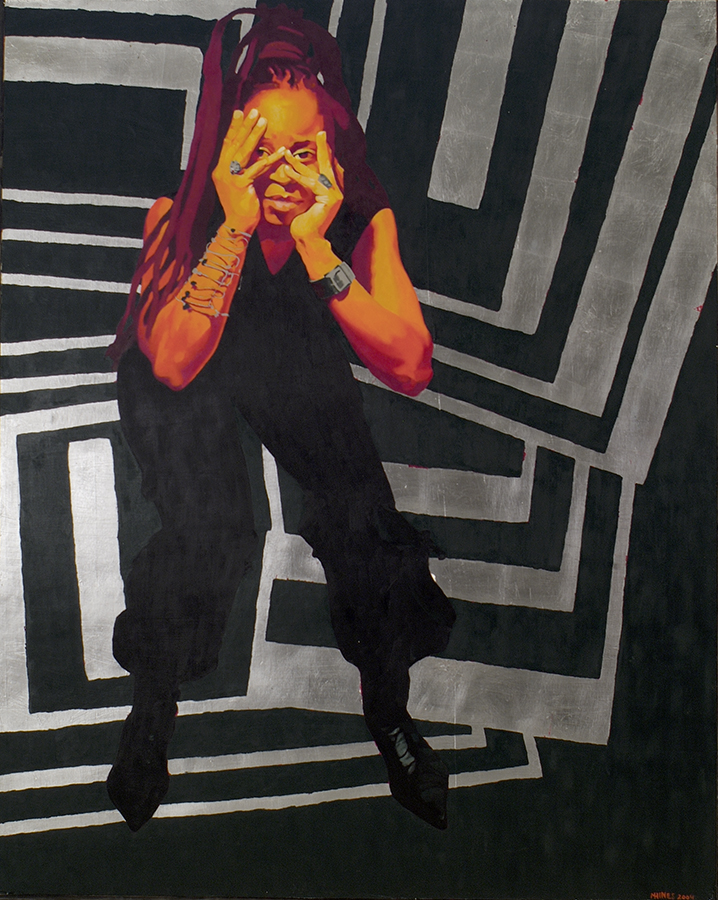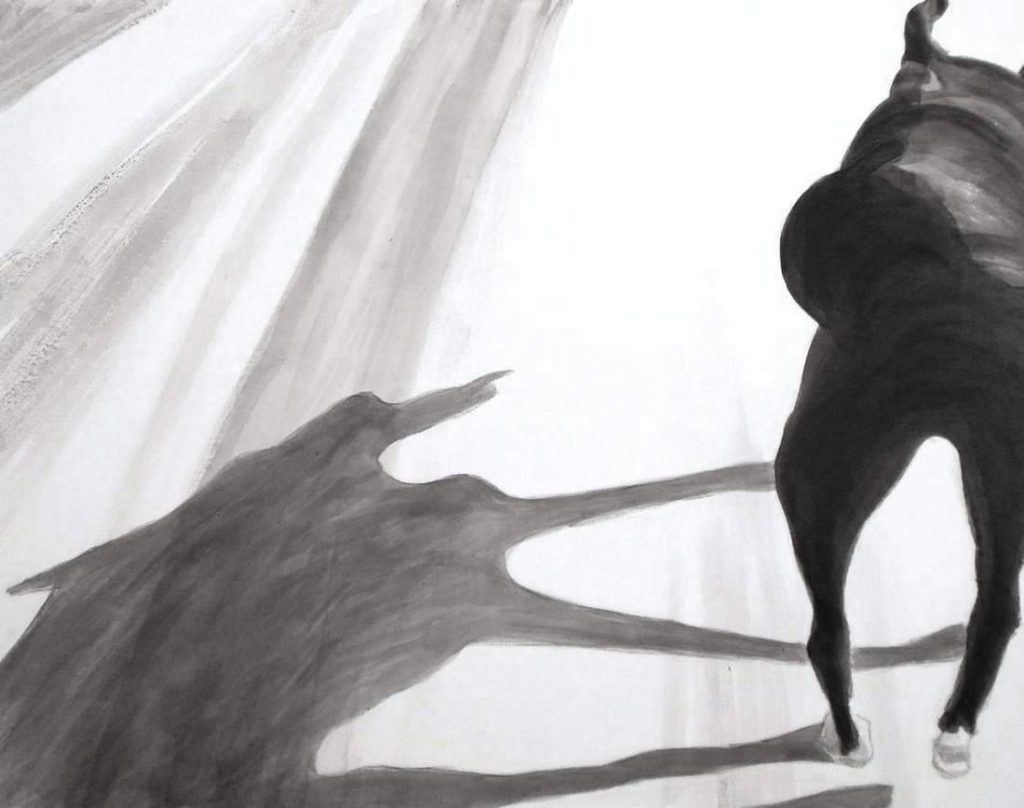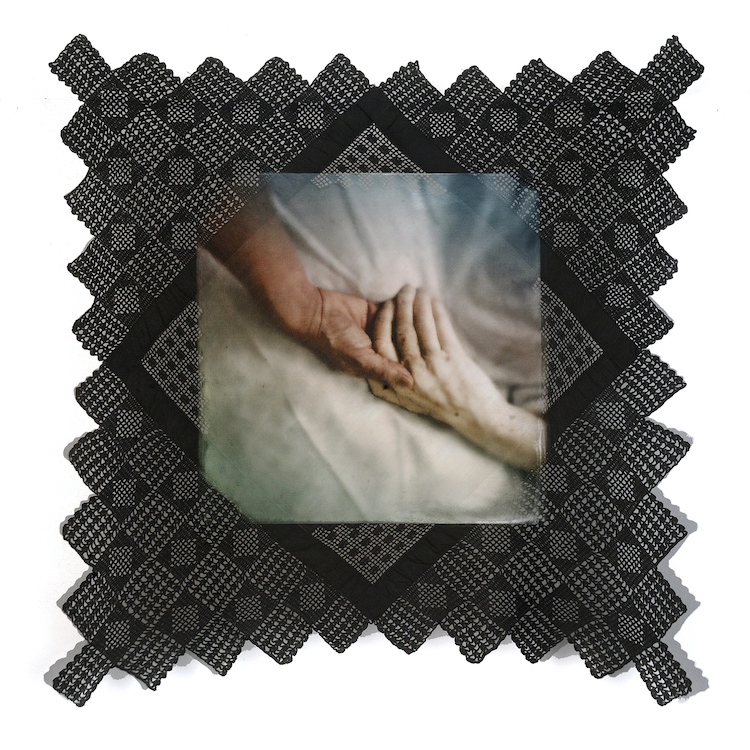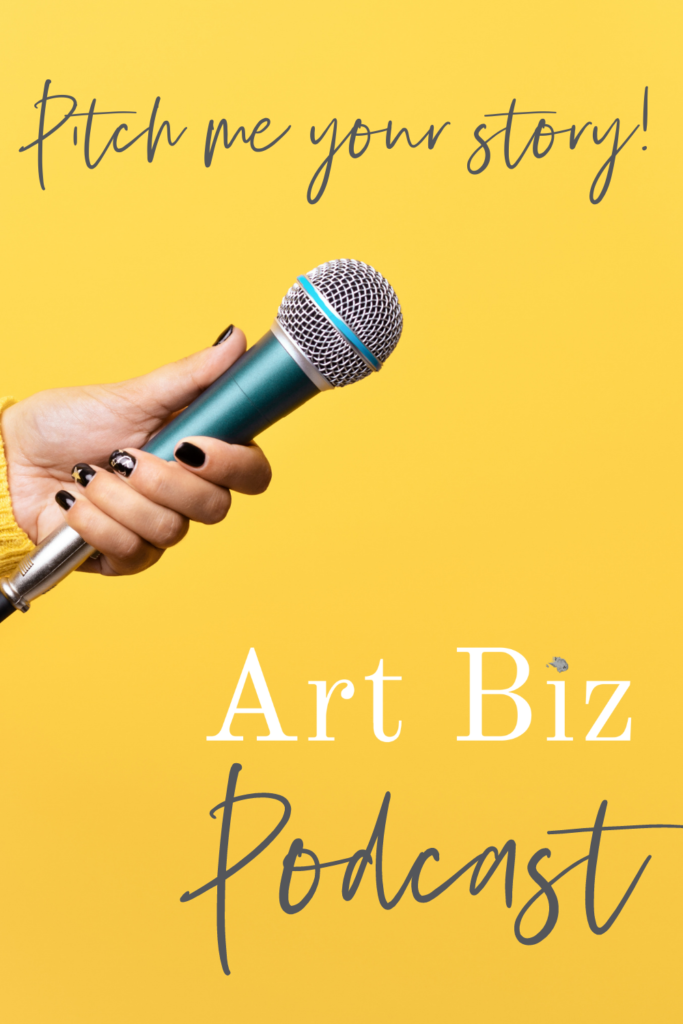I’m always on the lookout for artists with interesting business stories to tell.
I consider it my good fortune when I find them from one of my students or clients, and am equally happy when the story appears from beyond my immediate circle.
But I know there are hundreds and thousands of more stories out there that are waiting to be told. Not just to this podcast and blog, although that would be lovely, but to other podcasts, blogs, and media.

Make The Argument
I’m not crazy about the word “pitch” but I’m going with it. I use it in the sense that you are making an argument for something. You’re making an argument that I should pay attention to who you are and the art you make.
I specifically say “pitching your story” rather than “pitching your art” because most artists could benefit from massaging the stories they tell about themselves. You might not call it that, but it’s something that you’re constantly doing.
I’m more likely to pay attention to your art if you have a compelling story than if you ask me to buy, buy, buy. You’re pitching your story when:
- You post about your art on social media.
- You send an email to your list.
- You submit to an exhibition.
- You ask for gallery representation.
And take a minute to let this sink in. You’re (hopefully) pitching your story when you tell anyone you’re an artist. Anyone. At any point.
What I’m sharing will not only help you get featured on the Art Biz Podcast, but will also serve you when you pitch to other podcasts, bloggers, writers, and publications.
The more interviews you do and the more experience you get, the better you become at telling your story. You will also grow your audience and maybe even sell some art or attract new students and social media followers. You never know who is listening.
Listen
Music by Wildermiss.
Asbestos Mining and A Pitch Gone Wrong
I get all kinds of pitches from people who want to be on the podcast to those who want to write guest posts on my blog. The potential podcast guests usually come from an agency someone hired to get them publicity.
One particular example should serve as a warning for hiring any agency to do your bidding.
I’ve been following you for days now and I find your podcast show a very promising one! I have watched one of your episodes with Lynn Goldstein, Debate on the Dregs of Asbestos Mining, I must admit that it is worthy to listen to! Just in time, I am searching for podcasts for <guest expert> to appear on and I think he would be a good fit for your podcast.
This is what you’re up against. Truly clueless PR people.
Now, normally, if I respond at all, I just reply with a simple No because I know that an agency will follow up if I don’t respond. This was an opportunity too good to resist.
I replied:
While I appreciate that you have to send a lot of these out, you CLEARLY have not “watched” any of my episodes as they are all audio only and I interview artists (including Lynn Goldstein) who aren’t usually experts on asbestos mining.
Normally I wouldn’t bother replying to such an email, but I feel like you should know that this landed with a thud.
I think you should remove me from your list.

Here’s the thing. You pretty much get 1 chance to pique my (or someone else’s) interest in your story. If you don’t do your homework and if you aren’t careful about what you’re writing, you are just wasting your time.
5 Steps to Pitch Your Story to Me
1. Listen to my podcast and read my blog.
I can tell if you actually listen to my podcast because I describe exactly the people I select to be my guests: visual artists with a dedicated studio practice and a business lesson to share. I do not interview experts in asbestos mining. Ever. For any reason.
2. Research.
Look me up. Show that you respect me and the work I’m doing and I am much more likely to listen to your pitch. Here are a few highlights I think you should know about before coming on this show:
- I live in Colorado, but my listeners are all over the world.
- I’ve been helping artists figure out this crazy thing called a business since 2002.
- Before that I was a museum curator and educator for 10 years. I have a master’s degree in art history.
- I wrote a book that is now in its 4th printing and has been on artists’ shelves around the world since 2008.
- I created the Art Career Success System to give artists the foundational training they need to run a profitable art business. I also lead live workshops and small-group masterminds.
3. Figure out what business lesson you have to share with my listeners.
I’ll give you some ideas in just a minute. You want to make it easy for me to envision the story and say Yes.

4. Include a link.
If you have been a guest on other podcasts or shared your story in a video, share that link with me. Not everyone makes a good podcast guest. It’s reassuring if I can see or hear you speak. You don’t have to be brilliant, but a little experience helps.
5. Submit your pitch.
I’ve made it easy for you. All you have to do is complete the form on this page.
Now, about #3 … here are some angles for you.
Business Story Angles
Tell me about your big success.
- Lynn Goldstein (#58) didn’t discuss asbestos mining on the Art Biz Podcast, but she did share how she implemented e-commerce on her site and sold 18 original paintings in 3 months.
- Sean VanderVliet (#31) partnered with local chefs to create signature dinnerware for their tables and has much bigger plans for the future.
- Adele Sypesteyn (#36) pulled her art out of all her galleries so she could lower the prices, sell directly to collectors, and keep more money in her pocket. Ali Cavanaugh (#33) has a similar story.
I really want to hear about your struggles. We all do—because we all encounter challenges and learn more from struggles than from successes. Jan Heaton discusses working throughout the long illness and eventual passing of her daughter in episode #52.

Did you have an exhibition that nobody came to or a workshop that nobody signed up for? If you analyzed it afterward, there’s plenty to take away from the experience that could help others.
Maybe you had a low open rate on your email newsletters, and can tell us how you are now getting better results.
Maybe you have something to share about organizing your life and business.
- Daryl Johnson (#49) spent a year cleaning out her life to prepare for a big move and sold a lot of work in the process. Fiona Valentine also gave organizing tips in episode #38, and Heather Powers way back in #10.
Perhaps you can discuss how you create balance, how you get stuff done, or about the tools and technology you use. Or how meditation helps you stay focused in the studio.
Or even WHY you are working the way you are right now.
- Suzanne Gibbs (#40) shared how she spent a year focusing on making work that matters to her.
- Jan Carson (#23) talked about how she took a leap of faith to move away from a safe income from production work to a less certain fine art direction.
You Have a Unique Experience to Share
 After all of those examples, you might assume, incorrectly, that it’s all been said before. That’s simply not true.
After all of those examples, you might assume, incorrectly, that it’s all been said before. That’s simply not true.
As you can see just from those examples alone, I’ve done 3 episodes on getting organized and 2 on leaving your galleries. And they’re completely different from one another because each individual artist has a unique experience with the topic.
You have followed a path all your own. You have unique experiences that are worth sharing.
My listeners want to hear from you. When you’re ready, re-read those 5 steps above and submit your pitch here.
Listen
Music by Wildermiss.



8 thoughts on “The Art Biz ep. 63: Pitching Your Story to My Podcast or Anyone Else’s”
You are amazing Alyson!
Thanks for including my painting. I’ll be listening in my studio!
Why, of course. Happy to share it, Elizabeth.
Fabulous advice and article. I love the way you include and link to podcast episodes as examples! It’s brilliant! (Internal linking for the win!)
Thank you, and once I do all the homework listed above… or at least come up with an interesting angle I’ll be “pitching you.” Lol!
Hmmmmm…..ideas percolating!
🙂
Yes! I have my eye on you, Christine.
OMG! Have you considered requesting Lynn learn about asbestos mining? Maybe a follow-up to the e-commerce one which was great btw. I kinda would like to hear her attempt to explain it. Hahh did she laugh so hard? Ohhh I love your response. Brilliant. Great special edition Alyson
It sound either be a short and sweet episode or quickly swerve off-course.🙃